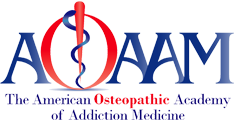This is an official
CDC HEALTH ADVISORY
Distributed via the CDC Health Alert Network
August 30, 2019, 9:35 AM ET
CDCHAN-00421
Severe Pulmonary Disease Associated with Using E-Cigarette Products
Summary
The Centers for Disease Control and Prevention (CDC) is providing: 1) background information on the forms of e-cigarette products, 2) information on the multistate outbreak of severe pulmonary disease associated with using e-cigarette products (devices, liquids, refill pods, and cartridges), and 3) clinical features of patients with severe pulmonary disease. This health advisory also provides recommendations for clinicians, public health officials, and the public based on currently available information.
General Background
E-cigarettes typically contain nicotine, most also contain flavorings and other chemicals, and some may contain marijuana or other substances. They are known by many different names and come in many shapes, sizes and device types. Devices may be referred to as “e-cigs,” “vapes,” “e-hookahs,” “vape pens,” “mods,” tanks, or electronic nicotine delivery systems (ENDS). Some e-cigarette devices resemble other tobacco products such as cigarettes; some resemble ordinary household items such as USB flash drives, pens, and flashlights; and others have unique shapes. Use of e-cigarettes is sometimes referred to as “vaping” or “juuling.” E-cigarettes used for dabbing are sometimes called “dab” pens.
E-cigarettes can contain harmful or potentially harmful substances, including nicotine, heavy metals (e.g., lead), volatile organic compounds, and cancer-causing chemicals. Additionally, some e-cigarette products are used to deliver illicit substances; may be acquired from unknown or unauthorized (i.e., “street”) sources; and may be modified for uses that could increase their potential for harm to the user. For example, some e-cigarette pods or cartridges marketed for single use can be refilled with illicit or unknown substances. In addition, some e-cigarette products are used for “dripping” or “dabbing.” Dripping involves dropping e-cigarette liquid directly onto the hot coils of an e-cigarette which can result in high concentrations of compounds (e.g., tetrahydrocannabinol [THC] and cannabinoid compounds). Dabbing involves superheating substances such as “budder”, butane hash oil (BHO), and “710” that contain high concentrations of THC and other plant compounds (e.g., cannabidiol [CBD]).
Youth, young adults, pregnant women, as well as adults who do not currently use tobacco products should not use e-cigarettes. E-cigarettes containing nicotine have the potential to help some individual adult smokers reduce their use of and transition away from cigarettes. However, e-cigarettes are not currently approved by the Food and Drug Administration (FDA) as a quit smoking aid, and the available science is inconclusive on whether e-cigarettes are effective for quitting smoking.
Outbreak Background
As of August 27, 2019, 215 possible cases have been reported from 25 states and additional reports of pulmonary illness are under investigation. One patient (in Illinois) with a history of recent e-cigarette use was hospitalized on July 29, 2019 with severe pulmonary disease and died on August 20, 2019. Although the etiology of e-cigarette-associated pulmonary disease is undetermined, epidemiologic investigations in affected states are ongoing to better characterize the exposures, demographic, clinical, and laboratory features and behaviors of patients. All patients have reported using e-cigarette products. The exact...... Read More
